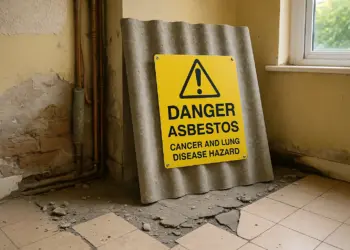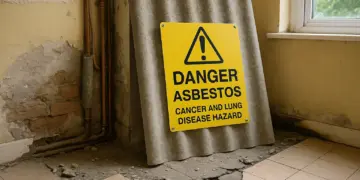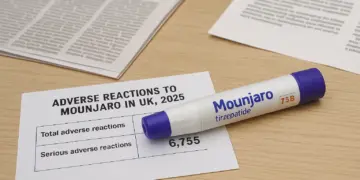Story Highlight
– Strikes at Sellafield disrupt local businesses, including hotels.
– Workers demand site-specific allowances for specialist skills.
– Traffic congestion affects health workers and school pupils.
– Community divided; some support workers, others frustrated.
– Sellafield Ltd states they cannot resolve the dispute.
Full Story
Strikes at Sellafield have prompted significant disruption in the surrounding region, leading a local hotel proprietor to express serious concerns about the impact on his business. Peter Frost-Pennington, the chairman of Pennington Hotels, which operates the Sella Park Country House Hotel close to the nuclear site, reported that his establishment is experiencing a drastic decline in bookings, stating it is “haemorrhaging business every day.” He called upon Unite, the union representing over 1,500 construction workers at the site, to consider how their actions are affecting the local community.
Members of Unite initiated strikes earlier this week, engaging in a walkout that is set to continue until Monday in a bid to secure site-specific allowances for workers with specialised skills. According to the union, this demand arises from what they describe as the employers’ failure to meet reasonable requests regarding worker compensation.
The strike’s ramifications have been felt throughout west Cumbria. Significant traffic disruptions have been reported, with essential service workers, such as nurses, enduring prolonged delays on their commutes. Pupils have also faced difficulties arriving at school on time due to ‘slow marches’ conducted by striking workers, severely congesting the roads surrounding Sellafield and impacting the wider community.
Reflecting on the situation, Mr Frost-Pennington noted that the ongoing strike has prompted challenges previously unseen in his nearly four-decade residence in the area. He remarked: “In almost 40 years of living in the area and trying to grow and develop viable businesses to offer great experiences to locals and visitors alike and provide decent employment to people, I have never before known of any industrial action at Sellafield which has had such detrimental effects on the local community and economy.” He acknowledged the presence of previous strikes but affirmed that none have had quite the same effect.
While expressing support for the workers’ right to strike, he encouraged Unite to reconsider their approach, stating, “I do not understand why they then discombobulate so many others in the area by shutting down the only access road to this part of the world.” Mr Frost-Pennington also pointed out that the current closure of the Corkickle railway tunnel worsens the situation, trapping many in gridlocked traffic.
Community sentiment appears divided, with some local residents voicing frustration on social media. Megan Francesca O’Gorman expressed that there is little support for the strikers among community members, suggesting their actions may be alienating rather than unifying the local populace. Similarly, Alan Spedding remarked on the extensive traffic queues that have only served to exacerbate discontent among residents.
Conversely, local councillor Graham Calvin came to the workers’ defence, pointing out that the construction staff in the area deserve fair treatment and emphasized the respectful conduct observed during the strike discussions. He relayed positive interactions with both police and union members, highlighting a sense of community respect throughout the situation.
Unite, in a statement, insisted that its members are exercising their democratic right to strike and contended that they have the backing of the local community. Unite regional officer Ryan Armstrong commented, “These marches are nothing new during periods of industrial dispute at the Sellafield site and our members have the full support of the local community in their fight for better terms and conditions.” He encouraged that any frustration regarding traffic disruptions should be directed at Sellafield Ltd and the various subcontractors involved, asserting that the employers could resolve the situation by complying with their reasonable demands.
In response, a spokesperson for Sellafield Ltd acknowledged the ongoing industrial action and clarified that the disputes arise from pay negotiations between Unite members and their employers, which Sellafield itself cannot directly resolve. The spokesperson reaffirmed the company’s commitment to maintaining safety at the Sellafield site and stated, “We have provided guidance to our employees who may be impacted in travelling to the site during the action. We will also continue to support Cumbria Police as they work to minimise the impact of the action on the local road network.”
As the week progresses, the ongoing strike situation and its implications for the local community and economy remain under close scrutiny.






















This has real consequences for the whole community. Local businesses and workers are bearing the cost through lost income and difficulty getting to work or school. While the right to pursue fair pay should be respected, the practical impact on essential services and livelihoods cannot be ignored. All parties should prioritise direct talks to find a timely, workable solution that recognises specialist skills while minimising harm to residents and the local economy.